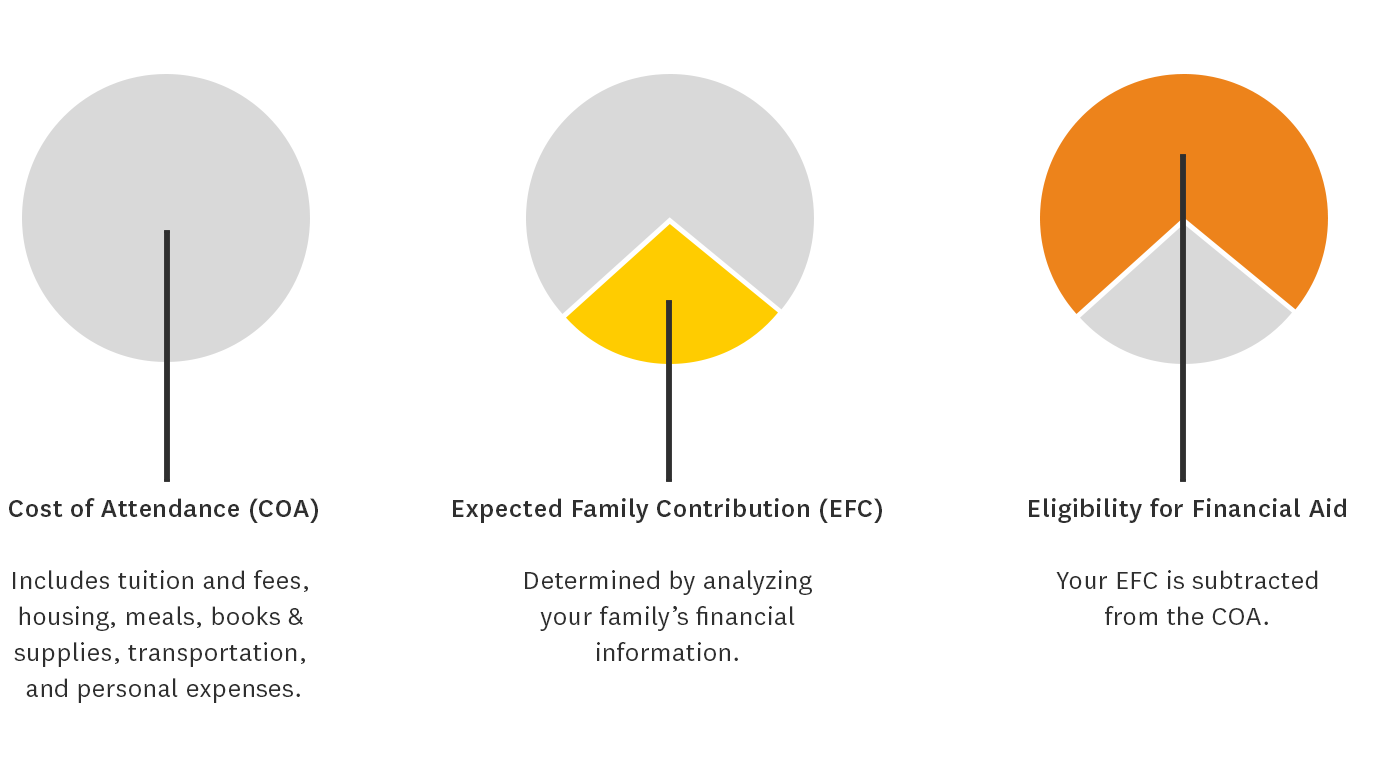How Aid Works
At USC, we work with families to meet a student’s full USC-determined financial need, subject to a review of the student’s financial aid application and the family’s finances, as well to available funds from federal, state and university sources.

How Your Student’s Financial Aid Eligibility is Determined
Your eligibility for federal and university need-based aid is based on two factors: the Cost of Attendance and your Expected Family Contribution, as calculated by USC.
The Cost of Attendance includes USC tuition and fees, on- or off-campus housing, a meal plan, and allowances for the estimated costs of books and supplies, transportation and personal expenses (clothing, toiletries, entertainment and so forth).
Your Expected Family Contribution is determined by analyzing your family’s financial information, such as:
Parents’ taxable and untaxed income;
Family assets (money in bank accounts, stock funds, real estate, etc.);
Any special circumstances your family has (such as a job loss or higher-than-average medical expenses);
The number of children in your family;
How many children are full-time undergraduates in college; and
How close parents are to retirement age.
Calculating the EFC
All colleges use a need analysis called the Federal Methodology to determine the amount of federal student aid for which you may qualify. USC also uses its own Institutional Methodology to determine the amount of university aid for which you qualify, in addition to federal aid.
Your EFC is then subtracted from the COA:
Cost of Attendance
- Expected Family Contribution
------------------------------------------------
= Your Eligibility for Financial Aid
The Expected Family Contribution (EFC) includes a minimum Student Contribution (SC) plus an estimated Parent Contribution (PC),
USC assesses a minimum Student Contribution for all students. This is the amount we expect students to contribute to their education through summer earnings or other savings.
If you are divorced or not married, a noncustodial parent contribution may also be included in the EFC.
Students must apply for financial aid every year. The EFC will be adjusted to reflect any changes in a family's financial strength.
A student's need-based loan and work-study eligibility can increase as he/she progresses through his/her academic career.
This doesn't directly affect eligibility for a university grant. If your Expected Family Contribution is relatively stable, the university grant should remain about the same or increase as tuition increases.
USC's Philosophy for Covering Your Financial Need
Use your eligibility for federal or state aid first (including loans).
Apply USC Grant to cover any remaining need.
Outside scholarships are applied to meet any need as determined using the Federal Methodology.



